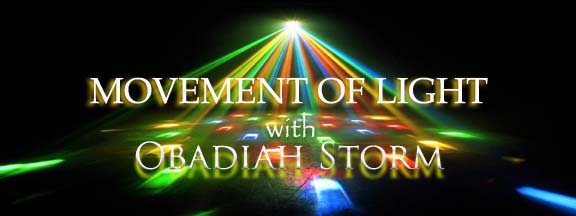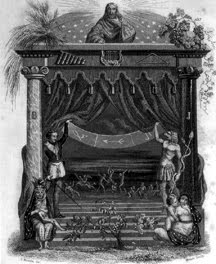
Since learning that Swami Vivekananda was a freemason I became interested in what the great teacher sensed or saw in the teachings of Freemasonry.
Diligently I have been researching, exploring, and watching our rituals with an open mind; I think I’m getting it.
I found the following article while researching similarities, even though written in the 1890’s I rather enjoyed its substance.
I have made a few grammatical corrections, and italics are mine.
“There can be no essential difference between the spirit of Christ and the spirit of Buddha, or the spirit of any manifestation before or since. There is only one Absolute Being and all Divine manifestations are from that Source. In a family a father may appear one day in one garment and on another day in another, and the children would be foolish indeed if they did not recognize him in the different garments he may wear. We are equally foolish when we fail to recognize the one universal Father under all His various forms, and condemn those who invoke Him by other names“…Swami Paramananda student of Brother Vivekananda)
THE FUTURE OF HINDUISM
Hinduism today is attracting the attention of the learned everywhere. We find that it has many times received shocks during different ages and different stages of civilization. We find it has influenced nearly all ancient religions, the Eleusinian and we believe the Pythagorean teachings of the past.
If we study the Neo-Platonists of the second or third century after Christ, or the Christian era, we see its influence on their thought. Indelible traces of it are seen here and there in Greek philosophy. The Christian Gnostics have arrived at the same truths on subjective thought as is revealed in Vedanta philosophy. Today we find people in the West embracing this religion, and I believe the time is gradually drawing near when there will be a general adoption of Vedantic Truths, which will influence largely the character of all nations.
A student of philosophy in the West has many creeds to study. He begins with the creeds and dogmas of Christianity. He may examine them minutely and carefully. If his spiritual intuitions are quickened, he must go deep and further examine more deliberately. He must examine something more liberal, perhaps the mystical writings of Emanuel Swedenborg or the transcendental philosophy of Anna Kingsford in her "Perfect Way." (A member of the Hermetic Society and mentor to Samuel Liddell MacGregor Mathers, Freemason.)
He may go further and take up German metaphysics, and in Germany we find to-day Vedanta’s is gaining ground. (Schopenhauer exclaims that “in the whole world there is no religion or philosophy so sublime and elevating as Vedanta… this Vedanta has been the solace of my life, and it will be the solace of my death. The philosopher Georg Wilhelm Friedrich Hegel refers to Indian thought reminiscent of Advaita-Vedanta in his introduction to his The Phenomenology of Spirit and in his Science of Logic.”)
We have no gradual studies, but all conflicting schools, whereas, in Hinduism they have reached the most beautiful and transcendental ultimate, the
"I AM BRAHMAN, I AND THE UNIVERSE ARE ONE,"
and have left the filling in of man's gradual progress for lesser thinkers.
Those who have reached these heights have been jealous that any of the minor sciences should in any way influence the mind or interrupt it during its ascent, or in the reaching of these lofty conclusions. All other sciences, the minor sciences, have at once been relegated to that of Maya or illusion. These teachers have called the objective an illusion. Materialists cannot understand this, but the Hindu Rishi’s (the rishi is a "seer" or "shaman" to whom the Vedas were "originally revealed" through states of higher consciousness.) thought it necessary, that the ultimate might be practically reached. This is the opinion of the best thinkers today.
Let us trace man's progress, or in other words, man's gradual development through the misty past until today; and let us see how Hinduism can affect him. The new science of anthropology reveals that man has lived long, long ages ago, contrary to what some theologians would have us believe; and here we find religion rather in an ignoble position, that of being contradicted by science. Anthropology has undeniably shown primitive man to be little better than an animal with tiny perceptions living in forests, caves, and on mountains. Let us watch him and see the first dawn of his higher nature. He is alone with nature, the stars, the running streams, the golden sunshine, and living and breathing, we would scarcely care to claim relationship with him. Can we imagine him asking, "Who am I," "why am I here," "where am I to go," "whither am I going”? In his solitude he finds how nature acts, how the great storms and cosmic disturbances happen, and one of his first ideas is that there is an Unknown power; he does not understand and therefore he fears it. Fear was the beginning of his worship. Brute force is what he craves. Hercules is his god to fight his battles. We can see the culmination of this stage in the Spartan's perfect physical body, where the warlike nature becomes fully developed.
Psychologists have called this the Adamic Man or the Animal Man. The next stage is the intellectual, sometimes called the Hermetic. At this stage his fears grow less, love of something higher grows a little stronger. His intellect now dawns. This is the period where he gains ideas, seeing things in different lights. He is not yet serving others. He is still serving himself. Sometimes he is full of faith in his own being. He becomes aware of the elements of his own nature, perhaps becomes materialistic. All souls are incarnated, differing in experiences, all seeking expressions, finding different paths: one says come and drink of my water, it is the only pure water; another says, don't take that water, poison is mixed with it. So according to one individual's intelligence, we have the world of creeds and beliefs, narrow or broad according to his development or evolution. Peak after peak does he ascend, showing that intelligence is higher and mightier than brute force, as the arts of war and military power became a science where brute force held sway before. He has been serving himself. He has been the master of himself, building his own body. Let us watch him in his next development the higher man where he no longer serves himself but others. Here is the turning point. His perception advances; he begins to understand creation. He understands why he is here, where he is destined to, where he has been eternally progressing. The spiritual man is born. By this time he feels his higher spiritual intuitions that reason cannot follow. Instead of being satisfied with his five senses, he wants others with which to interpret this higher man; a sixth sense, as one of the French philosophers calls it, is the "magnetic "or " psychic” sense. Not only has he these physical senses but their counterparts in his spiritual self. Clairvoyance, or Devic Seeing, I believe is what the Upanishads call it, whereby one can discern intelligence at the back of every object. Clairaudience is another sense whereby he can hear sounds too subtle for the physical ear. He can taste sweetness and discover aromas which are not discerned through the physical senses only. Contrasting with this physical sense of touch he finds the power of psychometry awakened. This is a wonderful sense. If I take up this letter I imprint on its aura, or astral atmosphere, which is around every object in the universe, my image; the state of my mind is photographed and recorded in the Great Book of Life. His intuitions, just referred to, become inspirations; he feels divinity within him. Divine power comes upon him. In fact he is inspired by the Divine Spirit. The soul speaks and the words carry conviction.
Let me say something of another sense through the help of which one can speak with the Higher Intelligences at will. It does not matter by what term we call them, gods, angels, Buddha’s, those who are free from cares, desires, from the trammels of the material world. By this time our pigmy man with his puny perception has become a spiritual man, perfected. His heart is now in the breast of everyone and the blood of all living creatures is running through his veins. He has one sense, an ALL-SENSE, united with and to all beings. The sorrows of all are his. His heart is full of sympathy, full of love. He is all love; his wisdom is sublime; he is prophetic. He no longer possesses a so-called discordant element in nature. He has simply unfolded his potentialities. This is the spiritual man.
These truths are better understood by the Hindu, who is naturally godly, who is ever holding to the idea, "I am approaching nearer my God." This is the true Hindu spirit, trying by head and heart to become Divine or to gain that exalted consciousness of his Divinity. . . . (Hinduism, I say most emphatically, supplies spiritual provision for all sorts and conditions of individuals. Hinduism is an all-inclusive religion open to all. It envelops and reverences all religions. It reflects universal truths for all.) Sound familiar!
We are approaching the dawn of a new day for humanity. Man understands himself, his soul, and finds that he is not the mere outward senses but that there is something greater within him. He sees he has nothing to fear. Fear is banished. Man's progress has always been kept back through fear. Fear not anything. Search for this All-Wisdom within you, and all matters will at once become clear, all questions whether political, social or religious will be answered from that centre. It is easier for the Hindu, I believe, than for an American. Why? Let us compare the two for a moment: The American people are energetic, always in a hurry, never satisfied, always trying to go ahead of others, forgetting that we shall all get there on time, flesh eaters and centering attention closely on material welfare. While on the other hand, the Hindu is proverbially mild, godly, and religious; he can and does easily reach that centre. It is this country that has sent the newest and last great thoughts. The world is turning its eyes on India for the solution of the many problems of this universe. Everywhere its study is being eagerly taken up. We are only gradually becoming aware of the sacrifice and unselfishness of many of the leaders both past and present, and of the touching history of the noble Sannyasins. I say it is a very hard matter to understand this devotedness and the cultivation of that spirit of renunciation. To give up home, friends, family, dress and the surroundings which we hold so dear is undoubtedly a very difficult task for the Western people. This idea of renunciation can only be grasped from the highest feelings in the human heart. This is an idea just going through our understanding, that of intense realization to become united with the Para-Brahman. In this country we expect to see the Atman manifest in man. Your past has produced many such ideal men, and more will yet be born. No matter what upheavals and shocks India meets this is her ideal. . . . Have beautiful thought and you will become beautiful, have spiritual thought and you will become spiritual. — Coulson Turnbull, Esq., Ph.D., in "The Dawn," Calcutta.



















